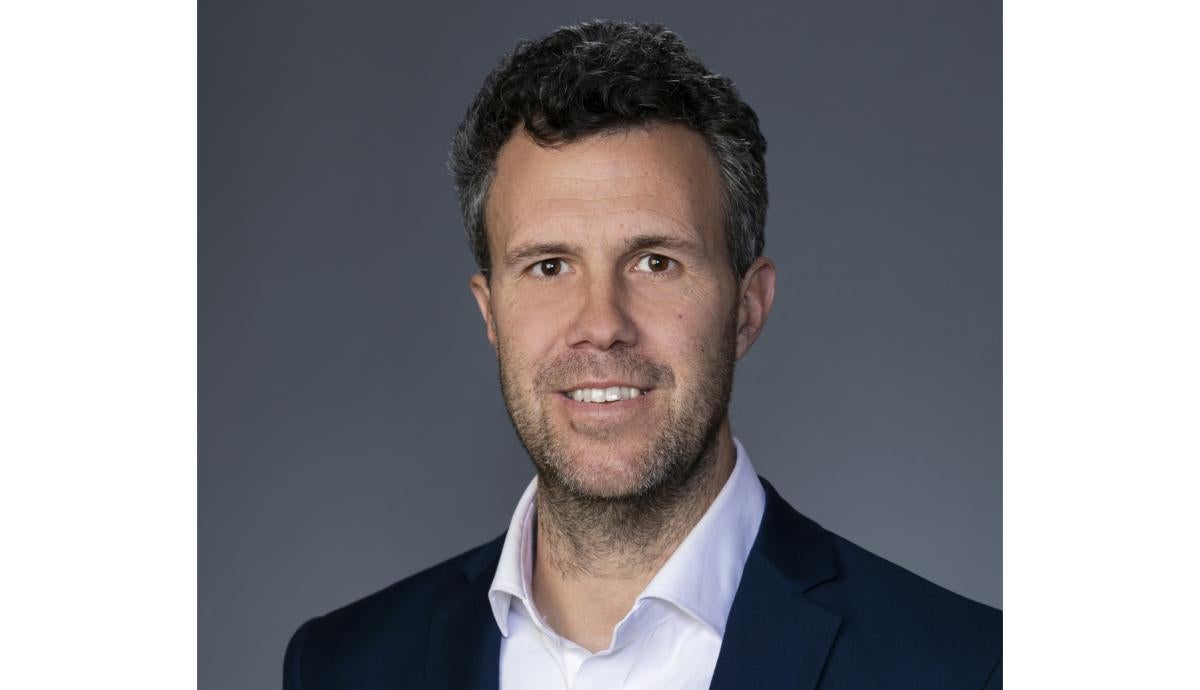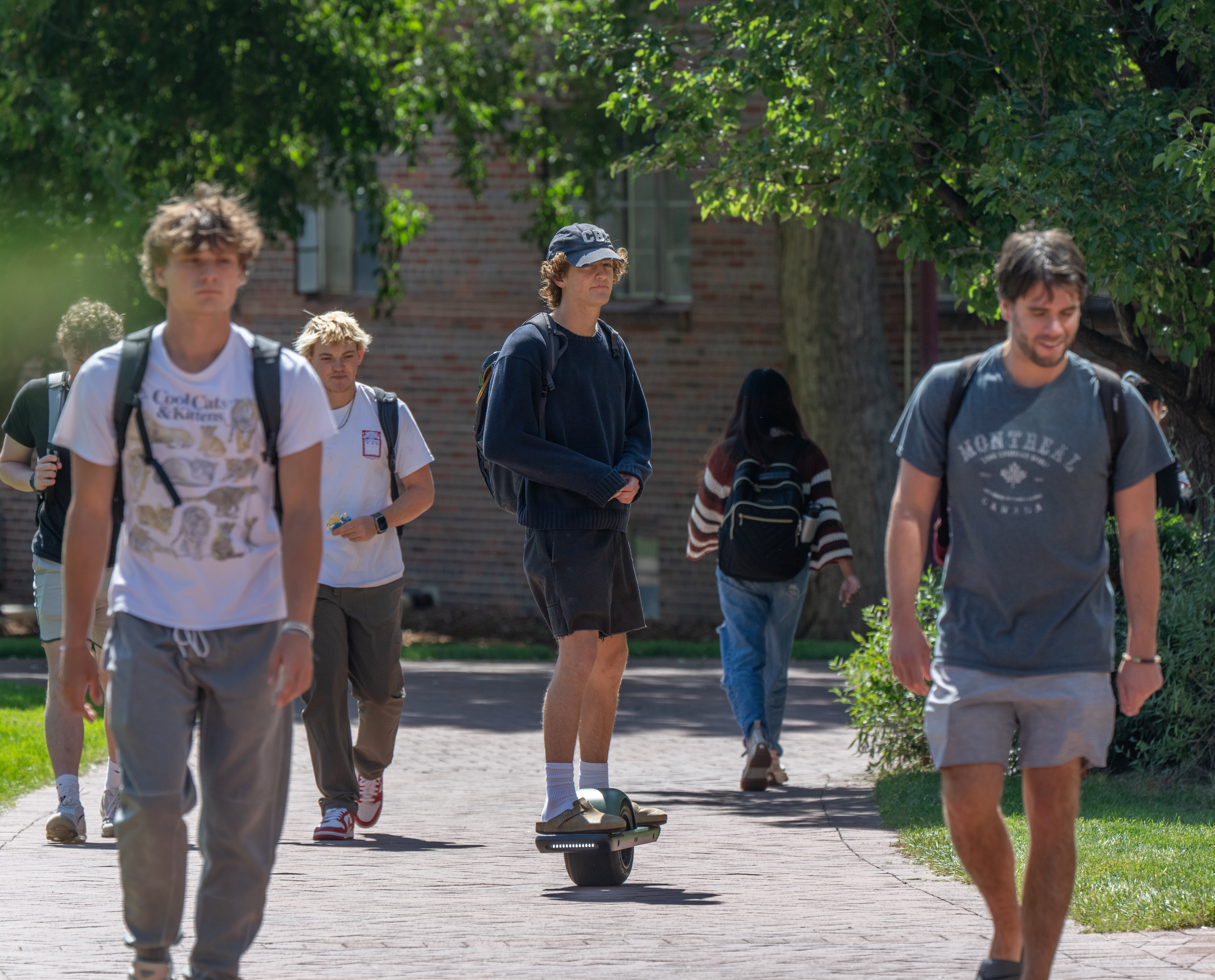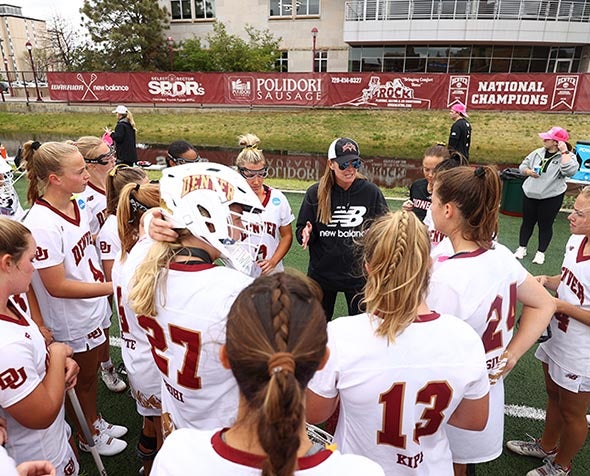5 Questions with ‘Future Perfect 50’ Inductee Justin Marceau

Justin Marceau’s work is both boundary-breaking and interdisciplinary. As the Brooks Institute Faculty Research Scholar of Animal Law and Policy at the University of Denver’s Sturm College of Law, Marceau mainly studies the intersection of criminal law and animal law — but his research doesn’t stop there. He’s also an expert in Constitutional law and environmental and natural resources law. And Marceau is a busy guy; he also serves as faculty director of the Animal Law Program, the faculty director of the Animal Activist Legal Defense Project (AALDP); and is an affiliated faculty member with the Institute for Human Animal Connection in DU’s Graduate School of Social Work.
Marceau was recognized this year by Vox as a member of the publication’s “Future Perfect 50” series, a list of “scientists, thinkers, scholars, writers, and activists working on solutions to today's (and tomorrow’s) biggest problems.”
“Change for animals is slow, challenging work, and activists — especially those who employ bold, risky tactics — are likely to face repression from governments and corporations,” Vox writes. “With the Animal Activist Legal Defense Project, Marceau wants to train the next generation of lawyers to think differently about their roles in that movement — and to fundamentally change animal law.”
The DU Newsroom chatted with Marceau about his most recent research, what he’s taking on next and his favorite things about DU and Colorado.
What brought you to DU?
I love Colorado! The beautiful campus and the openness to bold, new academic directions and fields is unique. We have a culture of caring about teaching but also pushing boundaries in research.
Tell us a little bit about the work you do at DU.
I have been a professor at the law school for more than a decade, and I specialize in a variety of social justice issues including animal protection law and criminal law. Some of my research —along with my colleagues Sam Kamin (law) and Scott Phillips (sociology) — has focused on the legal problems with the death penalty in this country. And in fact, our research was cited as one of the reasons to ultimately end capital punishment in the state of Colorado, and it has been cited by federal and state courts, including the U.S. Supreme Court.
More recently, I have focused on the importance of transparency in food production, particularly industrialized animal slaughter. I co-authored a book with my colleague Alan Chen titled “Truth and Transparency: Undercover Investigations in the Twenty-First Century,” that provides a deep dive into the history, practice and legal implications of undercover investigations.
What does your designation on Vox’s “Future Perfect 50” list mean to you?
It is really special to see public recognition for our efforts at DU to highlight the role of law in promoting animal protection. The field of animal law has grown tremendously over the past decade, with more student interest, faculty research and legal work, and DU is among the leaders in providing an opportunity to learn about the emerging legal status of animals. Along with colleagues at schools including Harvard, Yale, Vermont and Lewis and Clark, I am honored to be among a cohort of faculty who are committed to seeing a steady increase in the amount and quality of educational and research opportunities in this field.
I am particularly proud of our Animal Law Program, which hosts events and offers a degree certificate, and our newly formed the Animal Activist Legal Defense Project. The latter program gives students a clinic-like experience in terms of hands-on education in a dynamic and unique setting. Under the supervision of leading national lawyers, the AALDP allows students to represent activists charged with crimes or sued civilly, and in so doing helps students better understand criminal defense, social movement lawyering and animal protection efforts. Our lead attorney and the students have already advised dozens of activists and secured key victories in a unique education setting.
I have always been drawn to the power of the law to help the least among us. Animals suffer tremendously in our society, and we are working to help improve the status of animals in the law and thereby improve their lives.
Describe one thing about your research that you find particularly interesting.
I wrote a book in 2019 that has started a set of conversations that I am proud of. The book, “Beyond Cages,” examines and ultimately criticizes the use of prosecution and punishment as a response to animal maltreatment. By drawing on critiques of the criminal system more generally, I have tried to create bridges between civil rights lawyers, in general, and animal lawyers.
Too often, civil rights lawyers ignore or even mock the suffering of non-human animals, and too often animal lawyers appear willing to sacrifice human well-being for the advancement of animal status. The book challenges the assumption that animals are better protected when we pursue human incarceration and instead is a call for more creative and mutually beneficial approaches to improving the status of animals. There is no data that harsher criminal responses have reduced animal cruelty, and when the dominant frame of animal law is one of crime and punishment, the systemic and structural sources of animal suffering — including industrialized farming — are overlooked or ignored.
It is easy for laws to target the teenager who harms a single dog, and it is more challenging to imagine legal norms that might not tolerate, for example, the farming of dogs on puppy-mills or the suffering of animals raised for food. The law treats as a hero the person who rescues a suffering dog trapped in a hot car but treats as a criminal the person who rescues a suffering dog from a commercial breeding facility. The role of a law professor is to scrutinize legal incongruities like this and offer alternatives.
What are you working on next?
I am working on a couple of projects that I am particularly excited about.
First, along with Kristen Stilt (Harvard) and Angela Fernandez (University of Toronto), we are working on a new, field-defining coursebook for animal law. We hope that the book will be accessible to undergraduates and graduate students alike and that the material will be sufficiently international and comparative so as to be accessible to audiences around the world. We hope the book will shape the way animal law is taught for decades to come.










